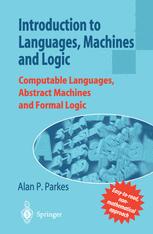

Most ebook files are in PDF format, so you can easily read them using various software such as Foxit Reader or directly on the Google Chrome browser.
Some ebook files are released by publishers in other formats such as .awz, .mobi, .epub, .fb2, etc. You may need to install specific software to read these formats on mobile/PC, such as Calibre.
Please read the tutorial at this link: https://ebookbell.com/faq
We offer FREE conversion to the popular formats you request; however, this may take some time. Therefore, right after payment, please email us, and we will try to provide the service as quickly as possible.
For some exceptional file formats or broken links (if any), please refrain from opening any disputes. Instead, email us first, and we will try to assist within a maximum of 6 hours.
EbookBell Team

4.0
66 reviews1.1 Overview This chapter briefly describes: • what this book is about • what this book tries to do • what this book tries not to do • a useful feature of the book: the exercises. 1.2 What This Book Is About This book is about three key topics of computer science, namely computable lan guages, abstract machines, and logic. Computable languages are related to what are usually known as "formal lan guages". I avoid using the latter phrase here because later on in the book I distin guish between formal languages and computable languages. In fact, computable languages are a special type of formal languages that can be processed, in ways considered in this book, by computers, or rather abstract machines that represent computers. Abstract machines are formal computing devices that we use to investigate prop erties of real computing devices. The term that is sometimes used to describe abstract machines is automata, but that sounds too much like real machines, in particular the type of machines we call robots. The logic part of the book considers using different types of formal logic to represent things and reason about them. The logics we consider all play a very important role in computing. They are Boolean logic, propositional logic, and first order predicate logic (FOPL).